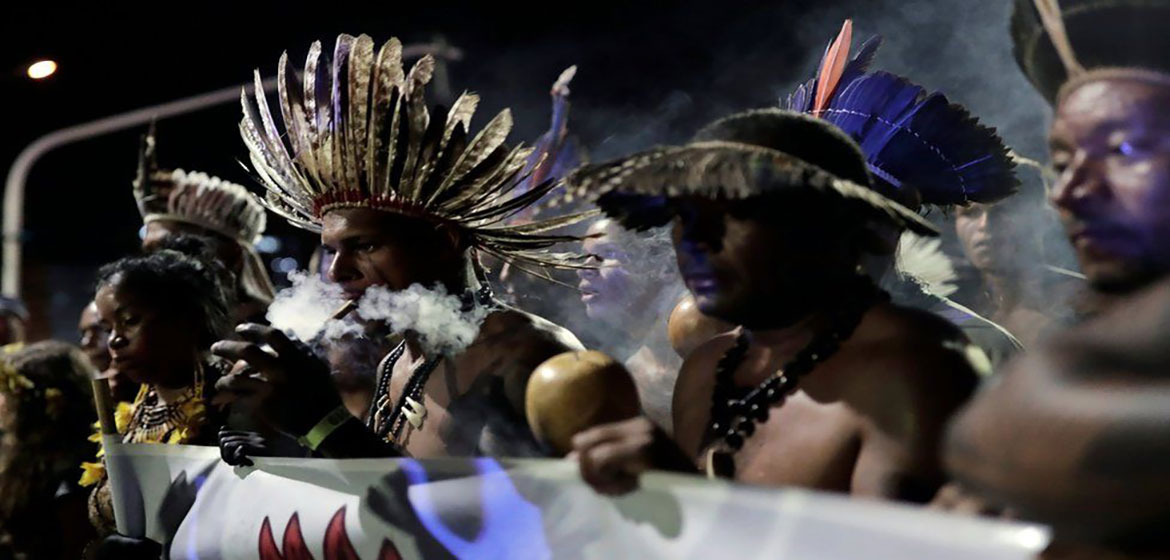Thousands of indigenous people have protested in the Brazilian capital, Brasília, to defend hard-won land and cultural rights that they say are under threat from the government of far-right President Jair Bolsonaro.
Some 4,000 indigenous people from across Brazil are expected for the three-day annual "Free Land" demonstration. They have set up camp along the main avenue leading to the iconic Congress building amid heavy security.
This year's event has taken on special importance after Mr Bolsonaro, who has promised to "integrate" indigenous people into the rest of the population and questioned the existence of their reserves, took office in January.
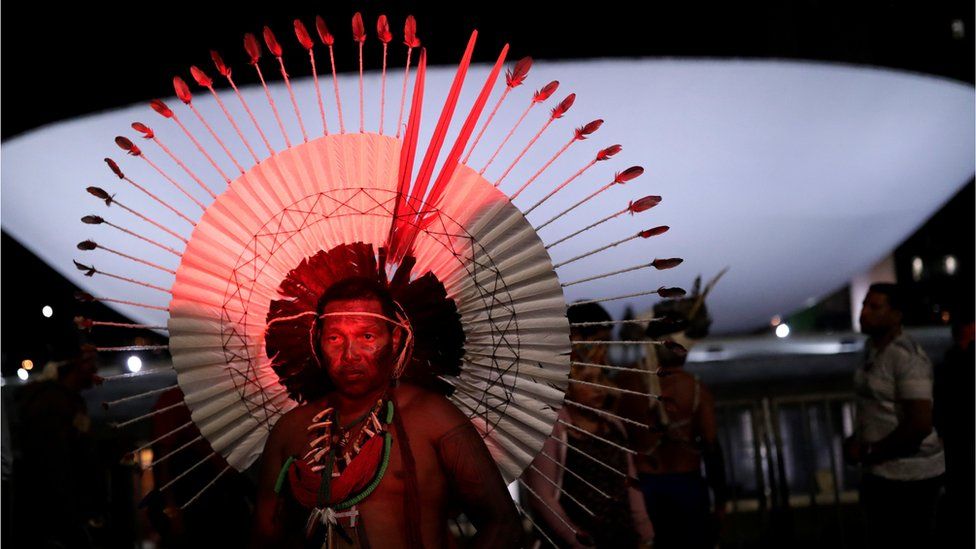
Mr Bolsonaro says the indigenous territories are too big in relation to the number of people who live there and has promised to freeze new demarcations and open some of them to agriculture and mining.
The president has already transferred the creation and limitation of reserves from Brazil's indigenous rights agency, Funai, to the agriculture ministry, a controversial decision that was seen as a victory for the powerful agribusiness sector.
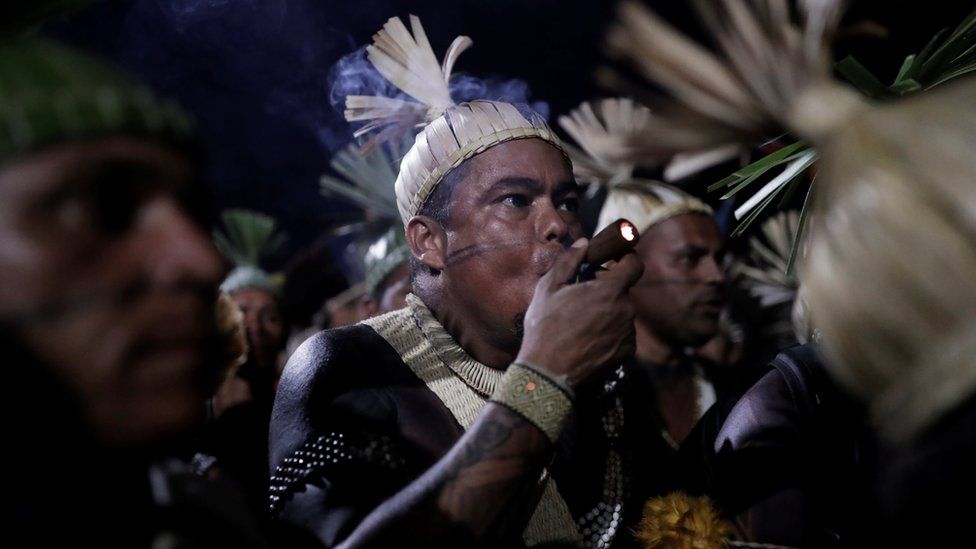
According to Funai, , or 12.2% of the territory, with some 500,000 inhabitants. The majority of them are located in the Amazon region and some live totally isolated.
The president - who has said the indigenous communities are being exploited and manipulated by non-governmental organisations - and his Environment Minister, Ricardo Salles, have also strongly criticised the environmental protection agency, Ibama, in charge of policing the Amazon to stop deforestation.
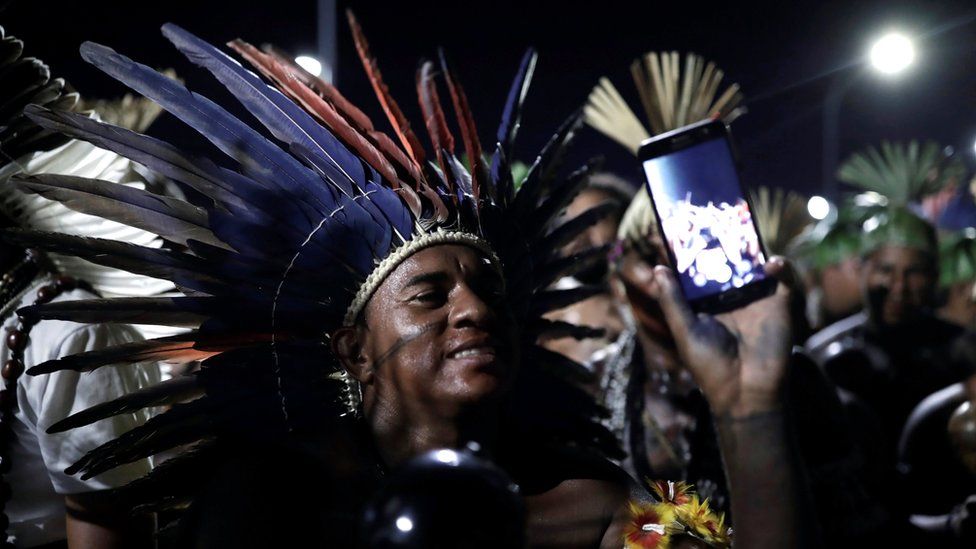
"This government that's in power today is trying to exterminate the indigenous people, but our people are warriors," indigenous leader Cacique Dara was quoted by AFP news agency as saying. "We don't care about wealth, what's important is nature."
Activists say the relaxation of the protections could lead to greater deforestation of the Amazon rainforest and threaten the existence of indigenous tribes.
, however abhorrent and outdated his views are," Stephen Corry, from rights group Survival International, said earlier this year.
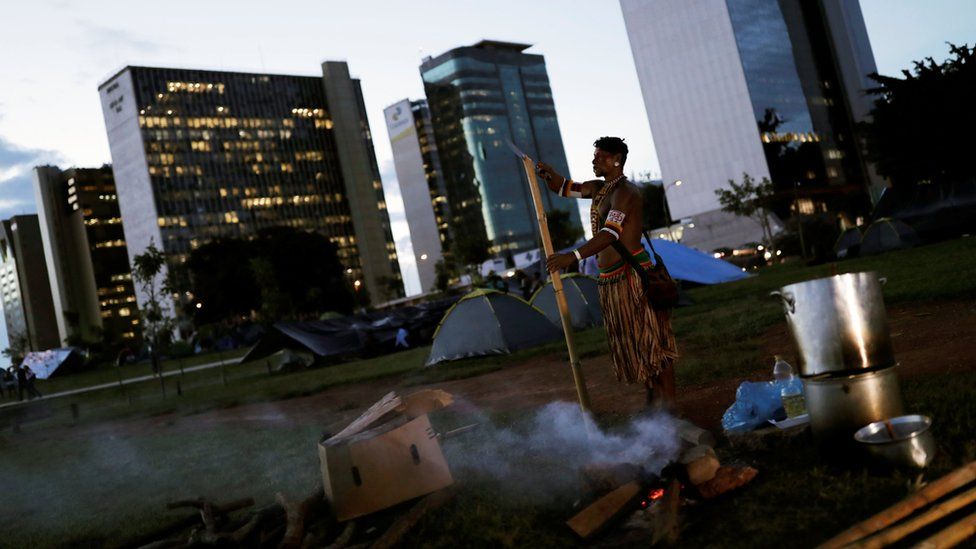
The demonstrators, some carrying posters saying "Our land is sacred", "No mining on indigenous lands" and "We demand the demarcation of our lands", were due to meet members of Congress and the Supreme Court. But no talks with government officials were scheduled.
Indigenous leader Mário Nicácio, one of the event's organisers, told Folha de S.Paulo newspaper that the decision by the Bolsonaro government to deploy the National Force to the streets around the protest was
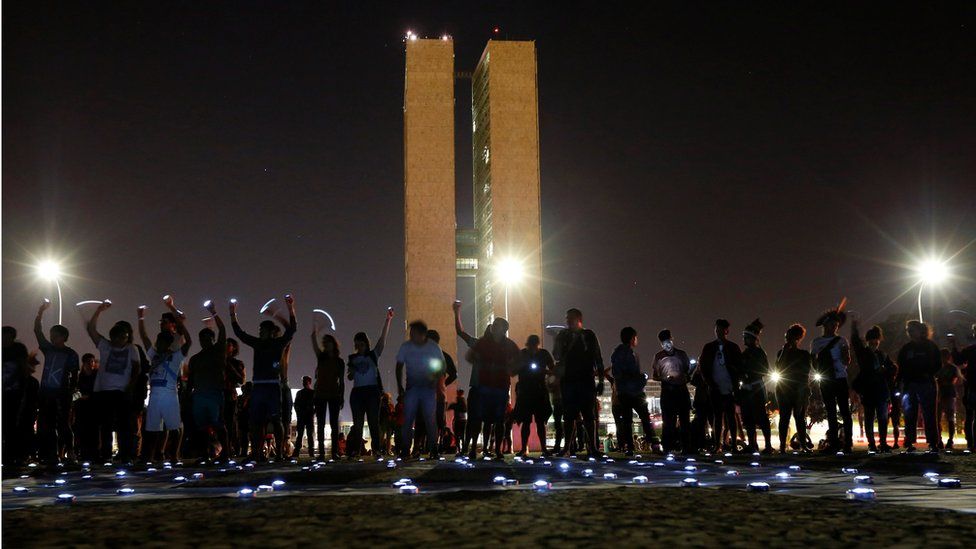
The protesters are also against the president's decision that transferred Funai from the justice ministry to a recently created ministry of women, family and human rights, led by an evangelical pastor, and changes to how healthcare is provided to the communities.
"We don't just fight for constitutional rights, we fight for the right to exist," indigenous leader Sonia Guajajar said.
Source:
Related to SDG 10: Reduced inequalities and SDG 16: Peace, justice and strong institutions

